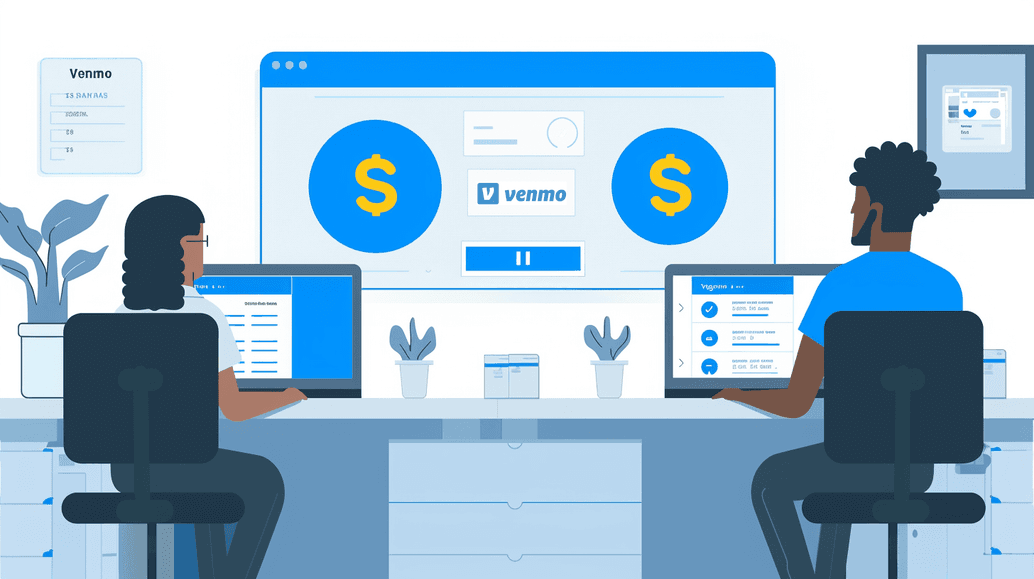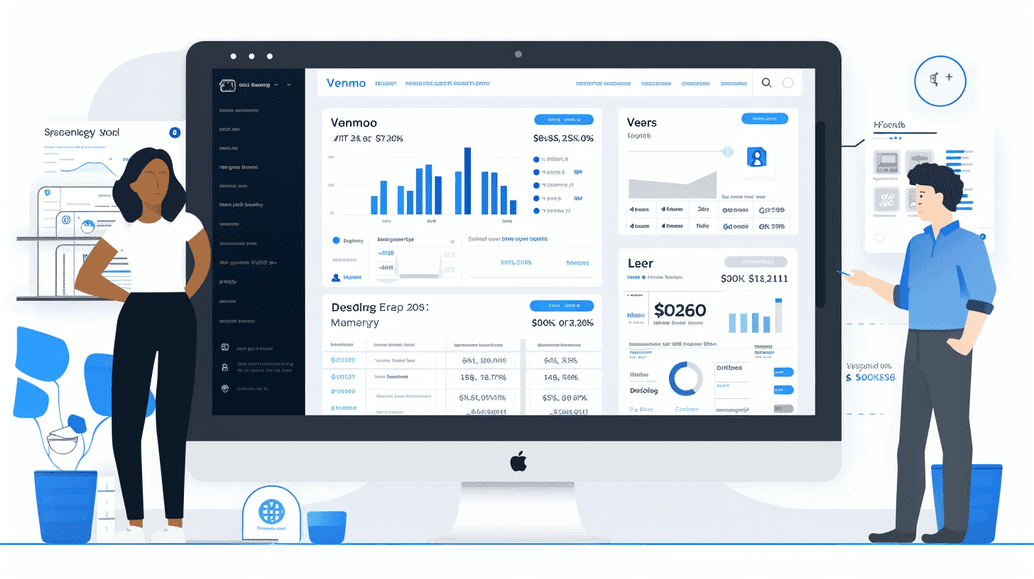Venmo for Business: A Complete Guide

In the age of digital finance and online transactions, there are payment solutions for businesses to match pretty much any need. Are you a startup looking for a reliable and affordable way of sending and receiving money? Or do you seek an alternative payment method to support your growing commercial network? Whatever the case, Venmo has something for you.
Can you use Venmo for business? Yes! Initially set up for personal transactions, this popular peer-to-peer platform made its services available for businesses in 2020. Venmo is a streamlined payment option that also helps companies engage their clients with additional social features. With millions of users already familiar with the app, it offers businesses a chance to tap into an established, tech-savvy customer base.
In our guide, you’ll find out everything you need to know about using Venmo for business. So, buckle up, and let’s go!
Understanding Venmo for Business

Venmo for business is a real find for smaller companies, online ventures, and all types of merchants, especially those targeting younger generations who tend to prefer digital transactions and online payments.
To start using Venmo for business, you should register a business profile on the platform. Business subscriptions are only available to current Venmo users, so you’ll need a regular account, too. You can create both individual and business profiles in one go using the providers website or mobile app:
- Sign in as an individual and select “Create a Business Profile” on the “Me” tab in the app or the drop-down menu on the website and tap “Get Started;.
- Choose your Social Security Number (SSN) or Employer Identification Number (EIN) to be used for tax purposes.
- Fill out your business profile with your company info, such as business name, type, and category, and add a brief description of your enterprise.
- Provide a mailing address you use for business purposes.
- Add your company’s contact data so your customers can get in touch with you.
- Review and check all the info you’ve entered and tap “Publish” to activate your business profile.
Note: To link a bank account to your Venmo business profile, go to “Settings” and click “Add Bank or Card”.
Requesting and Receiving Customer Payments
Using the Venmo app or website, you can generate payment requests and forward them to your customers via email, text message, or any other communication method. Customers can then click on the payment link to complete the operation. Funds will be deposited directly to your linked bank account. You can later review each Venmo business transaction through the dedicated dashboard.
Venmo for Business Features
Business profiles on the platform have a set of features designed to help sellers optimize transactions and ease the process of receiving money for small businesses.
- Tipping Function: Users can add tips to the final payment amount using the “Tipping” option in Settings.
- Split Limits: For record accuracy and operational conveniences, individual and business accounts have different limits for online payments and bank transfers.
- Balance Transfers: By verifying your identity on Venmo, you get access to immediate balance transfers between your personal and business accounts.
- Quick Refunds: Should you need to return a customer payment, you can quickly do so from your Venmo profile. The system automatically links this refund with the relevant customer for hassle-free accounting.
How do I get Venmo? Find the answer in our dedicated article.
Venmo for Business Benefits
Venmo offers quite a few benefits for companies, and over 2 million business users are already onboard.
- Effective Payment Processing: Customers can pay quickly and securely using their Venmo balance, linked bank account, or credit/debit card.
- Convenient Transaction Management: When using Venmo for Business, companies get robust tools for tracking and managing transactions, including detailed history, reporting, and payment options with existing POS systems and e-commerce platforms.
- Secure Transactions: Can Venmo be hacked by sending money? Theoretically, yes, but in practice it is almost impossible. The platform employs advanced security measures to protect both businesses and customers against fraud and unauthorized transactions.
- Extended Customer Reach: With millions of active users, Venmo will make your business more discoverable, especially among those who favor online and contactless payments.
How Much Does Venmo Charge for Business?

Business owners might also be interested in how to add cash to Venmo, how much can you send on Venmo, and discovering other key aspects of this payment system.
Relatively low Venmo fees for business are yet another prominent pro of the Venmo platform that makes it so attractive to startuppers and beginner merchants.
First, let’s take a look at the basics of Venmo transaction fees. Though at the lower side of the range, Venmo business account fees include:
- 1.9% + $0.10 for direct transactions from other Venmo accounts.
- 2.29% + $0.10 for contactless payments via the Tap to Pay function on iOS and Android.
- 2.9% in addition to the usual 1.9% + $0.10 for promo redemption payments.
How to Use Venmo for Business Effectively

Whether you are already using Venmo for business or just plan to tap into this payment service, here are a few tips that will help you make the most of this tool.
- Promote Your Venmo Business Profile: Display the Venmo logo prominently on your website, social media profiles, and in-store signage to encourage customers to use this payment method.
- Offer Incentives: Provide incentives such as discounts or rewards for customers who choose to pay with Venmo. This will help drive adoption among your client base.
- Set Up Notifications: Enable notifications within the Venmo app or dashboard to receive real-time alerts for incoming payments. Staying informed allows you to manage transactions promptly and efficiently.
- Monitor Transaction History: Regularly review your transaction history to track payments, identify trends, and reconcile your finances.
- Keep an Eye for Updates: Regularly check for announcements from Venmo and explore how new features can enhance your business operations.
You may be wondering what type of account Venmo allows you to create besides a business account. Also, which is better: Venmo or PayPal? Alternative payment systems can also be considered, so it is important to know the answer when you are choosing between these two platforms.
Final Thought
Venmo is more than just a payment processing tool for business, it’s a solid way to enhance customer experiences, streamline operations, and achieve consistent growth. The platform has all it takes for a business to succeed. If you consider embracing Venmo for your commercial transactions, don’t forget to check the platform's official website for more details on business Venmo fees and terms.




